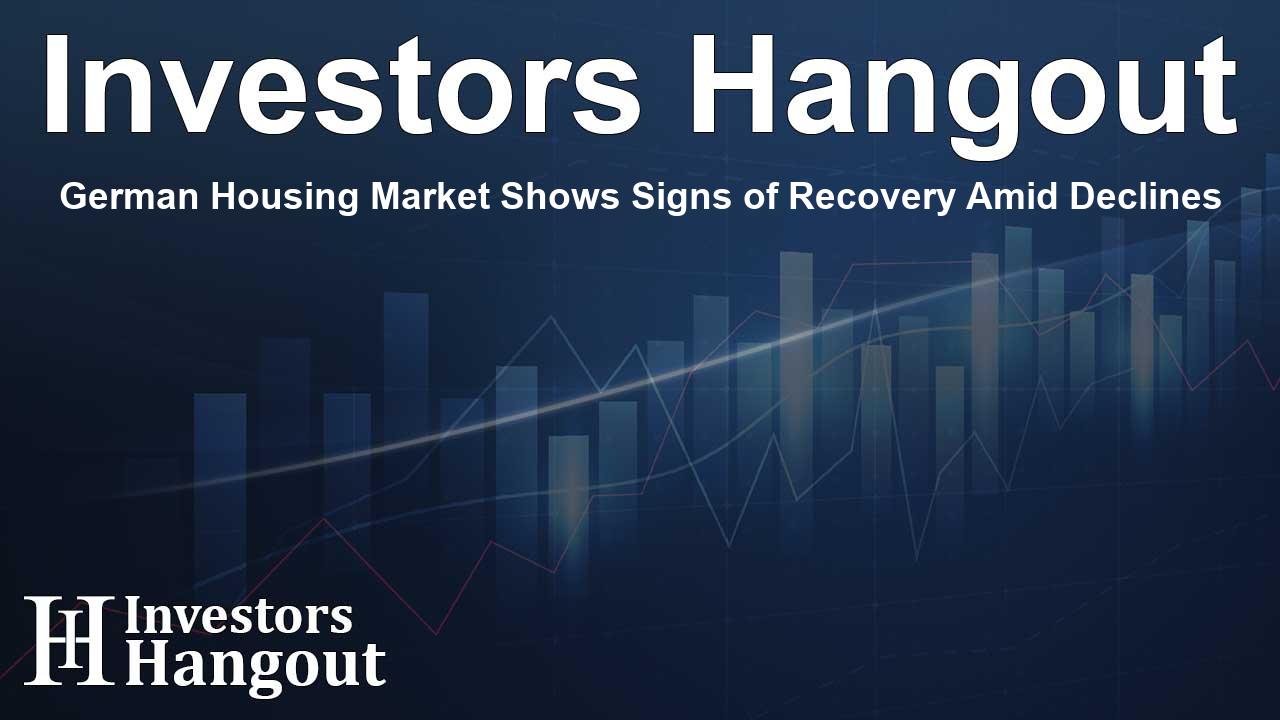German Housing Market Shows Signs of Recovery Amid Declines

Understanding Recent Trends in the German Housing Market
Germany's residential property prices have experienced a notable decline in the second quarter, with an average decrease of 2.6% compared to the previous year. However, a recent report from the federal statistics office highlights some encouraging signs of stabilization within the market.
Quarterly Upturn Amid Yearly Declines
While the annual drop is concerning, it is essential to note the context. The year-on-year declines have lessened in recent quarters. Most significantly, there was a quarter-on-quarter price increase of 1.3% in Q2 compared to the first three months of the year, marking the first upward trend since 2022. This shift suggests that the market might be reaching a turning point.
Factors Influencing the Property Market
Germany's property sector had been flourishing for years, spurred on by low interest rates and robust demand. This dynamic created an environment ideal for property investors and developers alike. However, the landscape has dramatically changed in recent times, primarily due to rising interest rates and escalating costs.
The Impact of Rising Interest Rates
The sharp increase in interest rates has significantly impacted the housing market. With financing conditions tightening, many developers are now facing challenges, with some even declaring insolvency. This situation has led to a freeze in deals across the sector, further complicating the market dynamics.
What Lies Ahead for the Housing Sector
Looking ahead, many analysts are cautiously optimistic. The stabilization indicators in the latest data could point towards a recovery phase. If the upward trend continues, it may restore confidence among both buyers and sellers, paving the way for a rejuvenated property market.
Market Sentiment and Future Developments
As the market navigates through this challenging period, sentiment among stakeholders will be crucial. A renewed optimism may lead to more investments in the housing sector, potentially reversing some of the adverse effects experienced in the past quarters. Thus, maintaining a close watch on interest rate changes and overall economic indicators will be essential for understanding future developments.
Frequently Asked Questions
What are the recent trends in German home prices?
German home prices fell by 2.6% year-on-year but showed a 1.3% increase quarter-on-quarter in Q2.
Why did home prices decline in Germany?
The decline is largely due to rising interest rates and increased construction costs, which have decreased demand and affected financing options.
Is there any hope for recovery in the housing market?
Yes, recent data indicates signs of stabilization, which could lead to a recovery phase if the upward trend continues.
How has interest rate increases affected the property market?
The increase in interest rates has led to tighter financing conditions, affecting developers and leading some into insolvency.
What should buyers and sellers expect moving forward?
Buyers and sellers should remain cautious but optimistic, watching for changes in interest rates and market sentiment for insights into future trends.
About Investors Hangout
Investors Hangout is a leading online stock forum for financial discussion and learning, offering a wide range of free tools and resources. It draws in traders of all levels, who exchange market knowledge, investigate trading tactics, and keep an eye on industry developments in real time. Featuring financial articles, stock message boards, quotes, charts, company profiles, and live news updates. Through cooperative learning and a wealth of informational resources, it helps users from novices creating their first portfolios to experts honing their techniques. Join Investors Hangout today: https://investorshangout.com/
Disclaimer: The content of this article is solely for general informational purposes only; it does not represent legal, financial, or investment advice. Investors Hangout does not offer financial advice; the author is not a licensed financial advisor. Consult a qualified advisor before making any financial or investment decisions based on this article. The author's interpretation of publicly available data shapes the opinions presented here; as a result, they should not be taken as advice to purchase, sell, or hold any securities mentioned or any other investments. The author does not guarantee the accuracy, completeness, or timeliness of any material, providing it "as is." Information and market conditions may change; past performance is not indicative of future outcomes. If any of the material offered here is inaccurate, please contact us for corrections.